North Sulawesi Diversity and Discovery
With warm, clear waters and extreme and diverse underwater topographies which range from colossal vertical walls in Bunaken, colorful drift dives around Bangka Island to the world’s best critter and muck diving in Lembeh – North Sulawesi’s underwater reef-scapes are as diverse and vibrant as the land itself.
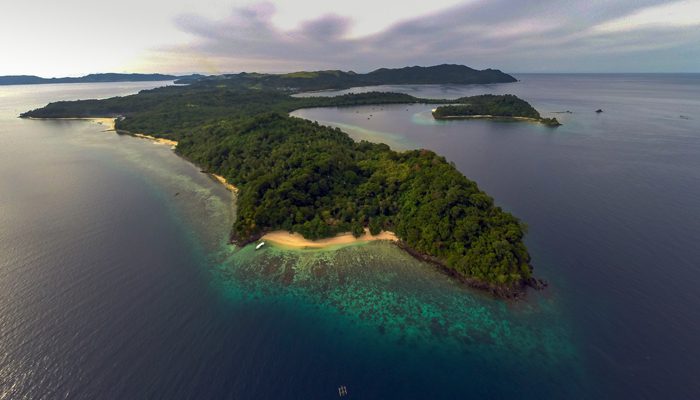
View of Bangka Island
Diving conditions around North Sulawesi are generally calm which make it an ideal place for those learning to dive, less experienced divers and those who enjoy taking their dives at a relaxing pace. These idyllic conditions also provide for great photography opportunities. For those seeking walls or deep diving head over to the Bunaken Marine Park, if you want exhilarating drifts and an island escape try Bangka, and for critter hunters look no further than right here in the Lembeh Strait which is home to the world’s highest concentration of unusual and rare marine species. In short you will not be disappointed whatever your diving preference – North Sulawesi rarely fails to impress.
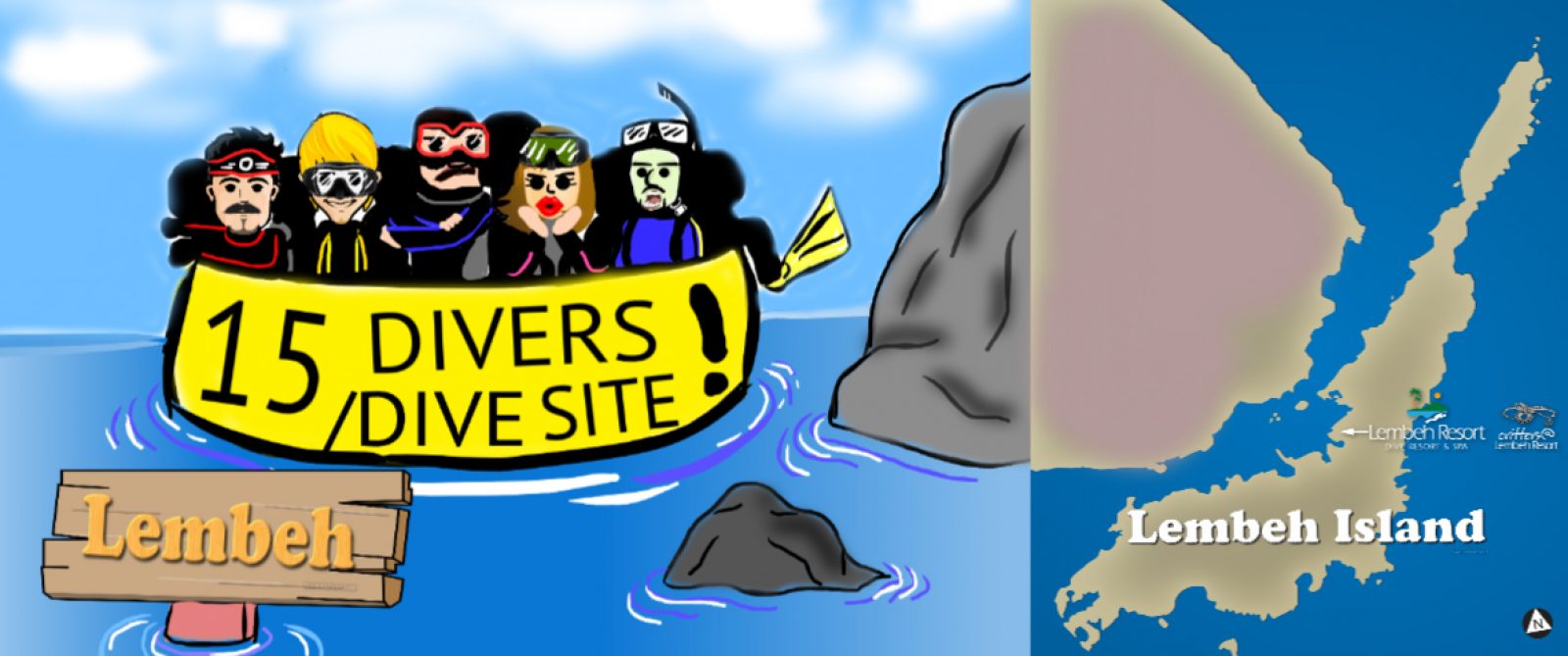
15 divers rule and map of Lembeh Strait
Over the years the number of divers visiting North Sulawesi has increased and with this we have seen an increase in not only “western” facilities but there have also been numerous positive environmental outcomes. Marine parks have been established which ensure fishermen are not taking directly from the reefs, clean up dives are carried out regularly as well as coral monitoring, shark and turtle conservation initiatives and we have our own coral project on our House Reef here at Lembeh Resort. In 2007 a regulation was implemented here in the Lembeh Strait which limits the number of divers allowed at any one dive site to 15 divers, including guides – this means that whichever site we are diving at you can be sure that it will not be overcrowded.
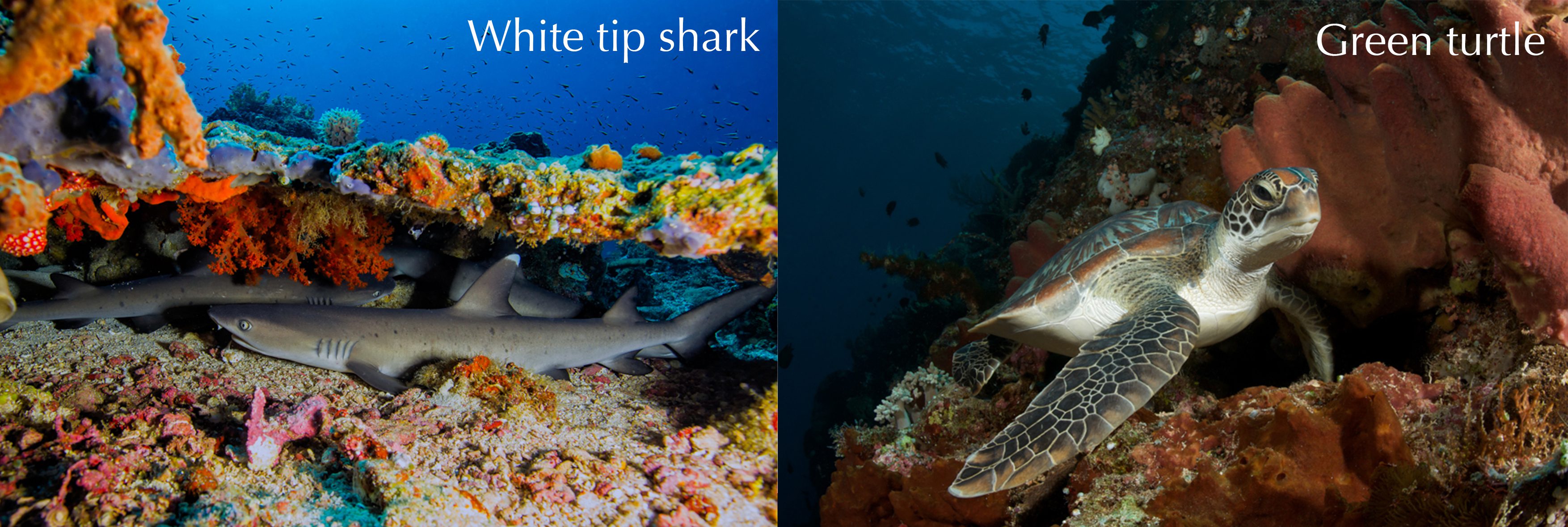
A successful turtle hatchery and conservation project on Siladen Island in the Bunaken Marine Park has seen Green Sea Turtle numbers increase dramatically and it’s not unusual to see numerous turtles in a single dive. Bunaken’s walls provide for many ledges and shelves on which the turtles rest and some of the alcoves and recesses are great places to see white tip reef sharks.
Bangka Island is the perfect dive destination for those who want a mix of everything; sloping reefs, rocky pinnacles and even some muck diving. The soft corals and explosive colors at sites such as Sahoung leave a lasting impression and it’s possible to see 3 species of pygmy seahorse in a single dive. Other Bangka favorites include the Ornate, Robust and Halimeda ghostpipefish and if you prefer larger species there’s a healthy population of reef sharks to boot.

View of Lembeh Strait form Lembeh Resort
Turning to our home ground in North Sulawesi – the Lembeh Strait, there is world class muck diving. Lembeh Strait is also dubbed as the “Critter Capital of the World” and described as a “Muck Diving Mecca”, but what is Muck diving? It’s a completely different diving experience and one that promises strange and alien like marine life encounters! Many of the Lembeh Strait’s most famous dive sites are black sand slopes with scattered patches of debris (some natural, some not so natural) along with anemones and small sponge coral patches. These sites may appear barren at first and they have a certain resemblance to the surface of the moon – devoid of life, but the more you look the more you see! This is the beauty of muck – with an experienced guide a whole new world of critters reveals itself. The marine creatures of the Lembeh Strait range from large blue spotted sting rays hiding in the sand to the tiny pygmy seahorses camouflaged on fan corals. Every coral, rock, anemone and even paint tin can be home to numerous species of shrimps, frogfish, scorpionfish, seahorse or nudibranch. It’s a treat to spot these incredible critters. Lembeh Strait actually has the highest concentration of the world’s most unusual marine life out of anywhere on the planet. After a few days of diving in the Strait your eyes start to adjust to the environment and that’s when it gets even more exciting – when you start spotting the critters yourself, it’s addictive!
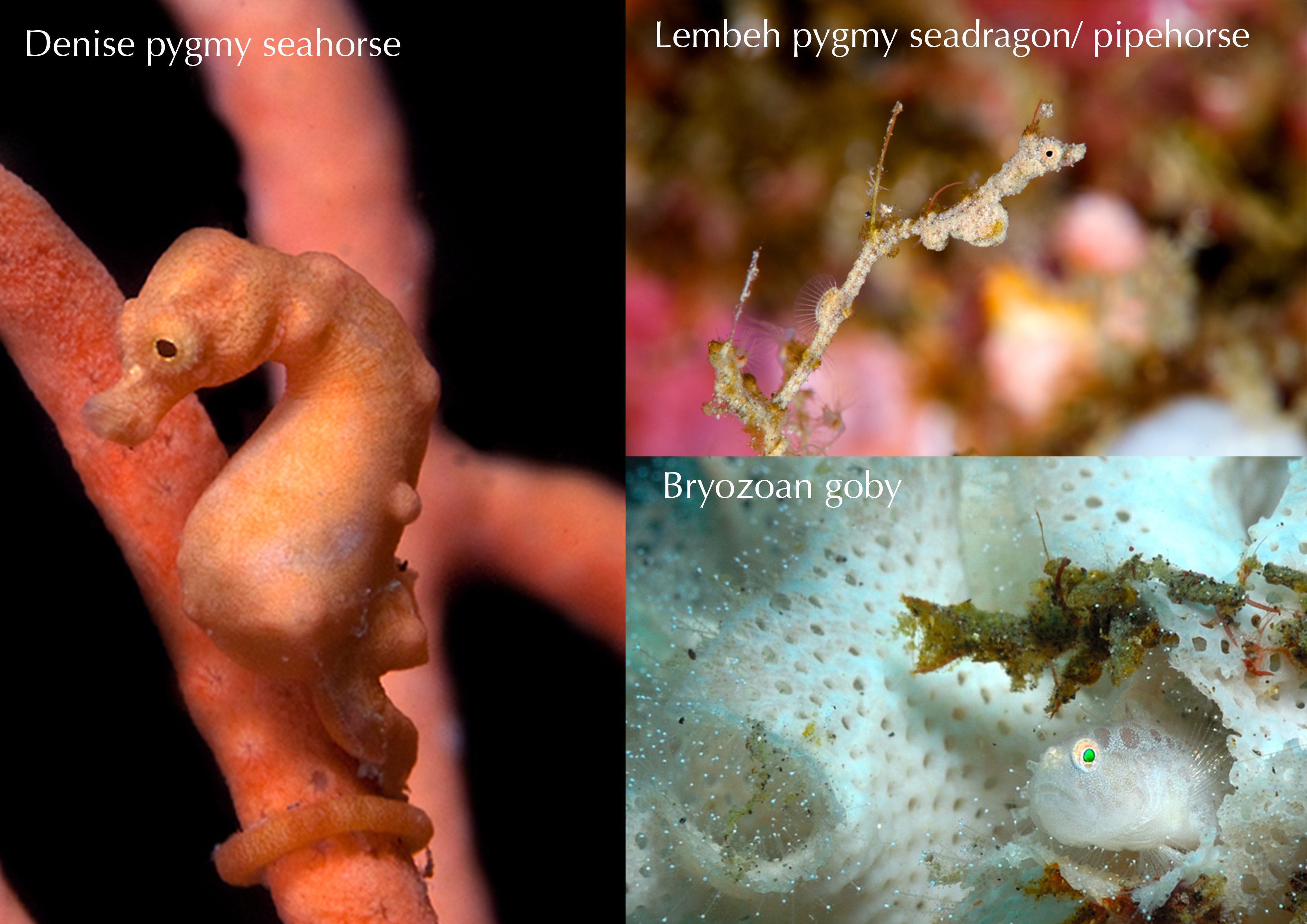
New species are also being discovered all over North Sulawesi – Hippocampus Satomi (one of the species of Pygmy Seahorses) was found for the first time in Lembeh on our very own House Reef. In 2014 our Dive Center Manager Lauren Siba discovered a new species of goby at Nudi Retreat 2 – the Bryozoan goby. Over the years the Strait continues to surprise us with new species being declared, some of the other well-known ones include Denise’s Pygmy Seahorse which was discovered by Denise Tackett and of course the Lembeh Sea Dragon. If you want to learn more about discoveries in Lembeh click here to read our Dive Center Manager’s article “1101 fishes – 43 more than they thought before”. This article by Lauren Siba was written following our 2014 Fish Geek Week where the world renowned marine life experts and marine biologists Dr. Mark Erdmann and Dr. Gerry Allen recorded in a single week 1101 species – more than what was previously known to exist in the strait – and less than we know now exist in the Strait!
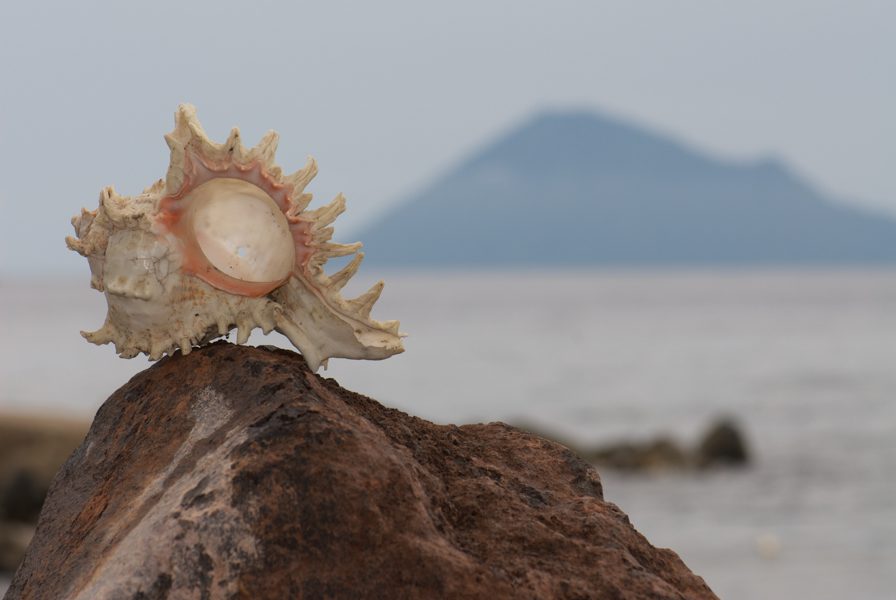
View Manado Tua from Murex Dive Resort
Mark Erdmann has been behind many discoveries in North Sulawesi and he was also involved in the identification of the Coelacanth around Manado Tua which is an island within the Bunaken National Park – North Sulawesi is forever surprising us!
If you are not sure what is possible to see in Lembeh and other areas of North Sulawesi and you want to find out more, please feel free to take advantage of our critter log to see what weird and wonderful creatures exist – you don’t need to sign up, you don’t need to dive with us, it’s just a resource we provide for all North Sulawesi explorers! It’s also a wonderful resource to use after diving to check out what you saw.
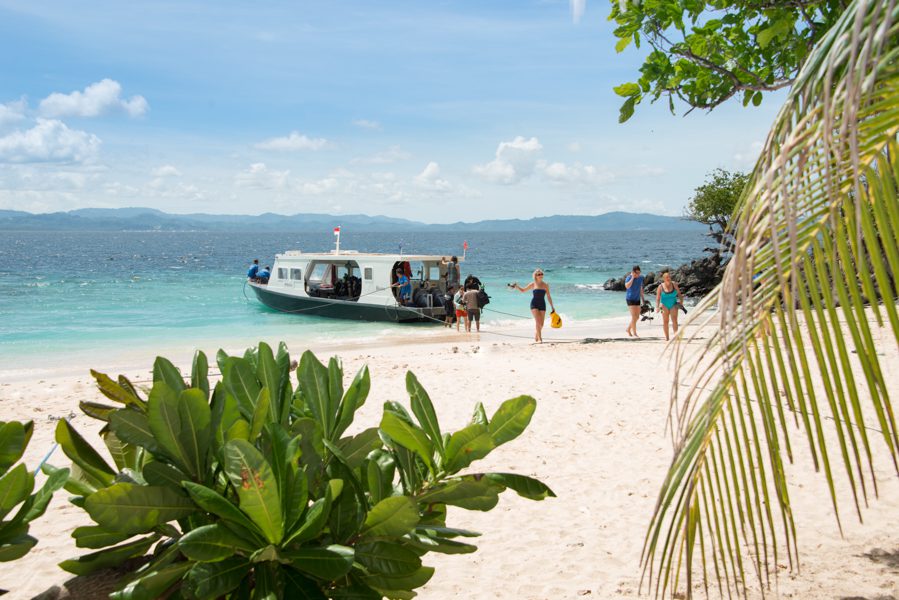
Bangka Island view from Murex Bangka
If you are looking for astounding marine life combined with top-side, breathtaking natural beauty then exploring North Sulawesi is a must!
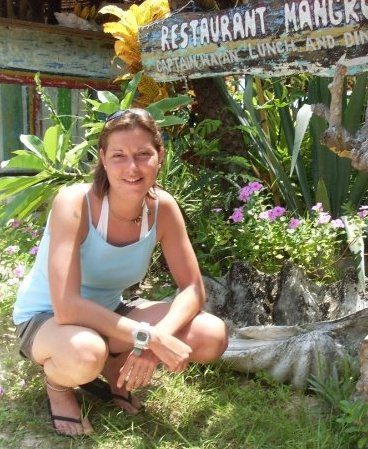 Author : Sarah Wormald
Author : Sarah Wormald



